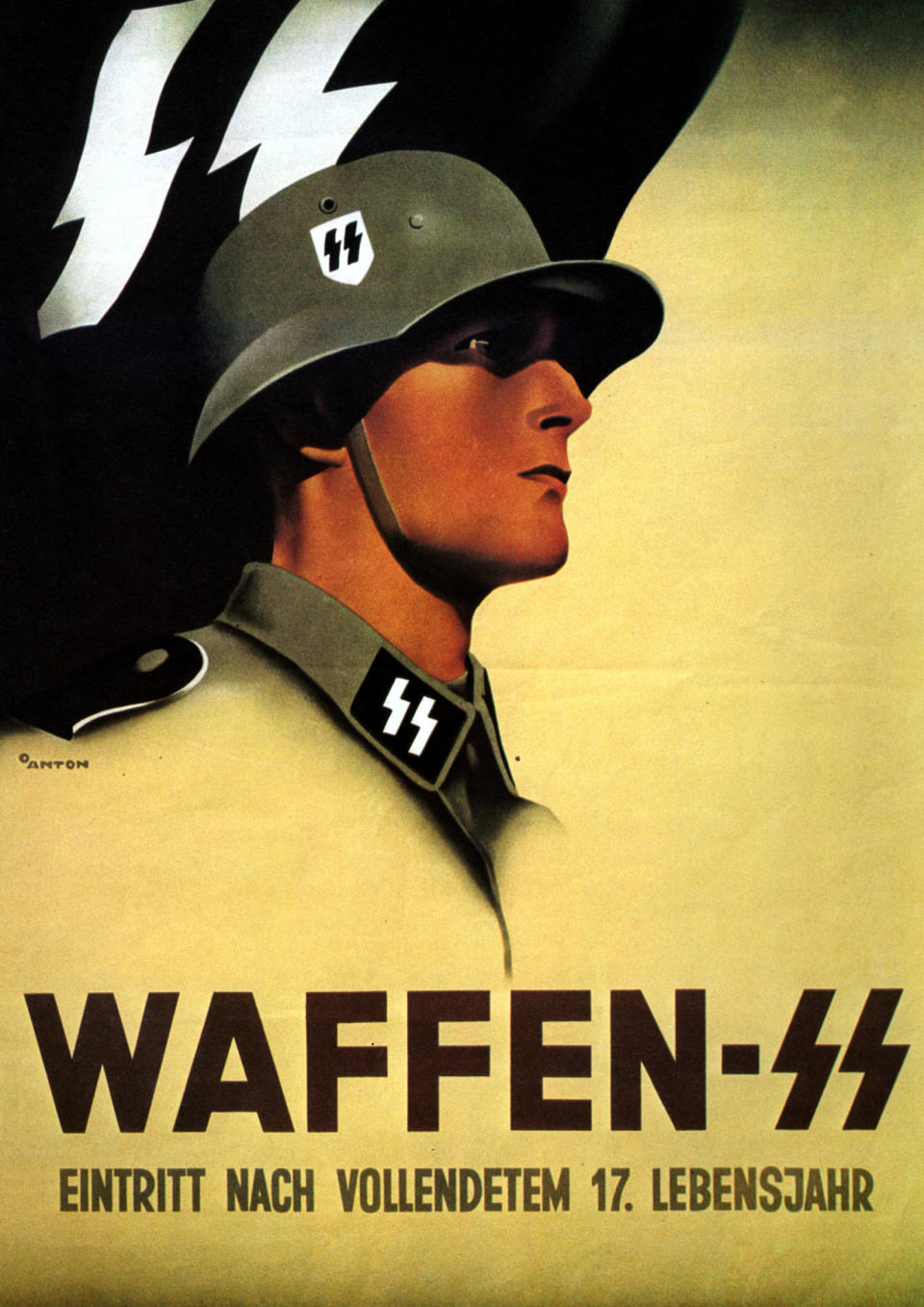Supporting the team or the SS? German soccer jersey with No. 44 pulled over Nazi symbolism
A sports jersey is one way for fans to show national pride — but German soccer fans have been banned from customizing theirs with the number 44 because of a resemblance to the lightning bolts symbol used by Nazi SS units.
Adidas, which makes the uniforms, said it has blocked the personalization from its online store.
A spokesperson for the company told NBC News that it strongly rejected any suggestion that it had intended for the design to resemble the symbol used by the Schutzstaffel group, a paramilitary organization of Adolf Hitler’s Third Reich that ran concentration camps during the Holocaust.
“Any attempts to promote divisive or exclusionary views are not part of our values as a brand,” they said. German soccer officials and their partner 11teamsports were responsible for the design of the names and numbers, the spokesperson added.

The move to ban the number came after people started pointing out the resemblance online.
The SS served as an “instrument of oppression” for the Nazis and was responsible for operating concentration camps across Germany, Ursula Münch, a professor of political science at the University of the Bundeswehr Munich, told NBC News.
Münch said the number 44 on the jersey could be read as the “rune signs for the letters ‘SS,’” used in the 19th and 20th centuries.
Unlike in the U.S., the symbols are banned in Germany.
The German Football Association (DFB) said in a post on X on Monday that it had checked the numbers zero to nine and submitted the numbers one to 29 to the Union of European Football Associations for review. “None of the parties involved saw any proximity to Nazi symbolism in the creation process of the jersey design,” it added.
An alternative design for the number four will be developed, it said.
The jerseys will be worn by the German soccer team as the country prepares to host the Euro 2024 soccer championship in June.
Last month, DFB announced it would be ending its seven-decade partnership with Adidas, opting for Nike to supply uniforms for Germany’s national teams for “financial” reasons.
The controversy comes as Germany still struggles with far-right extremism amid a rise in hate crimes.
The far-right political party Alternative for Germany is the third-strongest party in the country, despite being put under official surveillance by the country's domestic intelligence service in 2021.
Due to the party's rise and its extremist connections, there is "definitively a heightened awareness" in the country, said Kai Arzheimer, a professor of politics at the Johannes Gutenberg University Mainz.
The party's youth wing, Young Alternative for Germany (known via the German abbreviation JA), has members as young as 14. It was the first German group to be branded as extremist since the Nazi era.
"Even a resemblance between the style of this number '44' and the SS insignia is clearly enough to pull this specific jersey from the market," Arzheimer said.
This article was originally published on NBCNews.com

